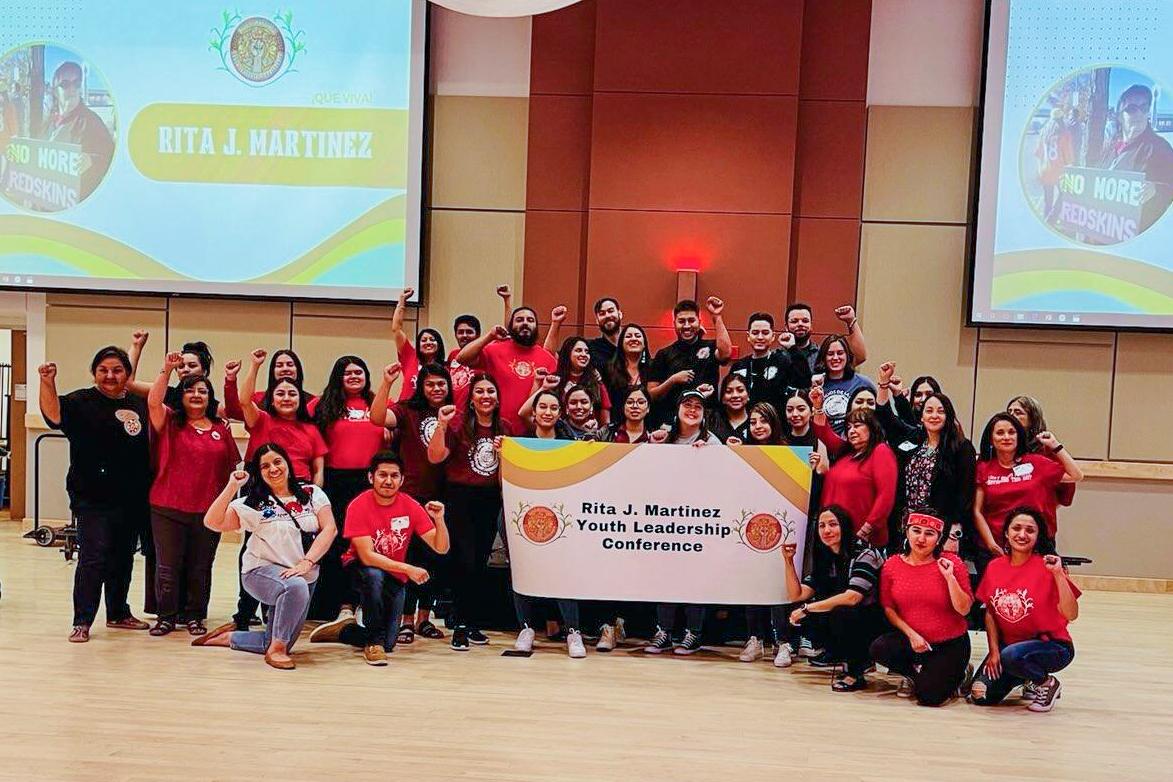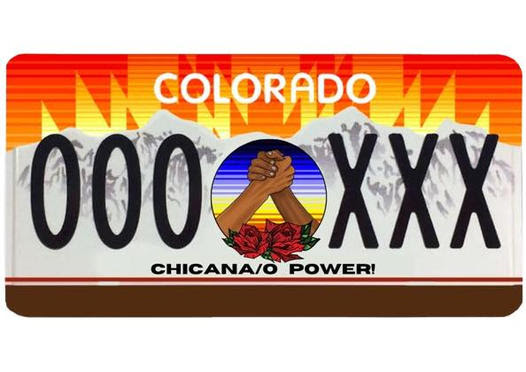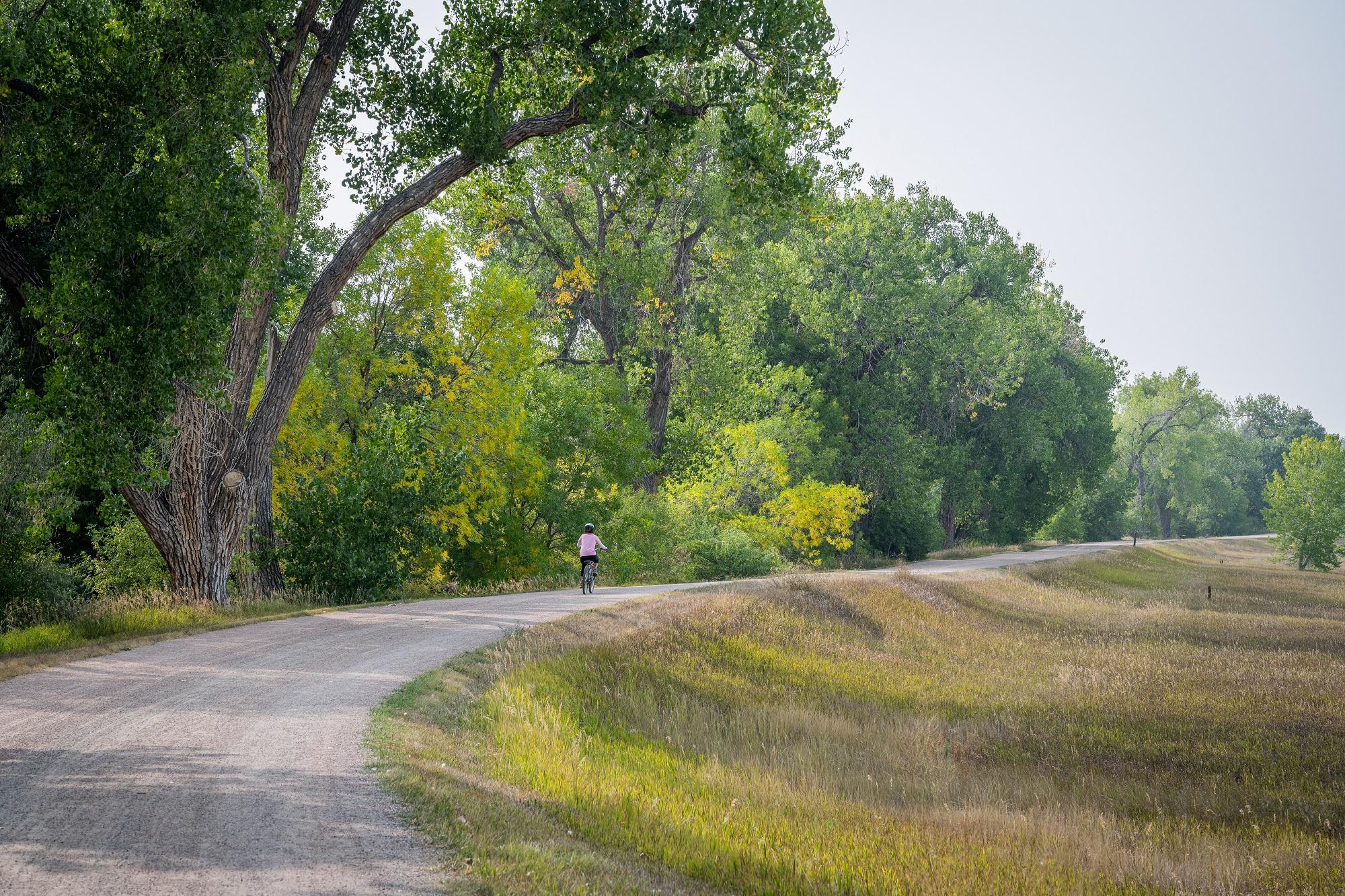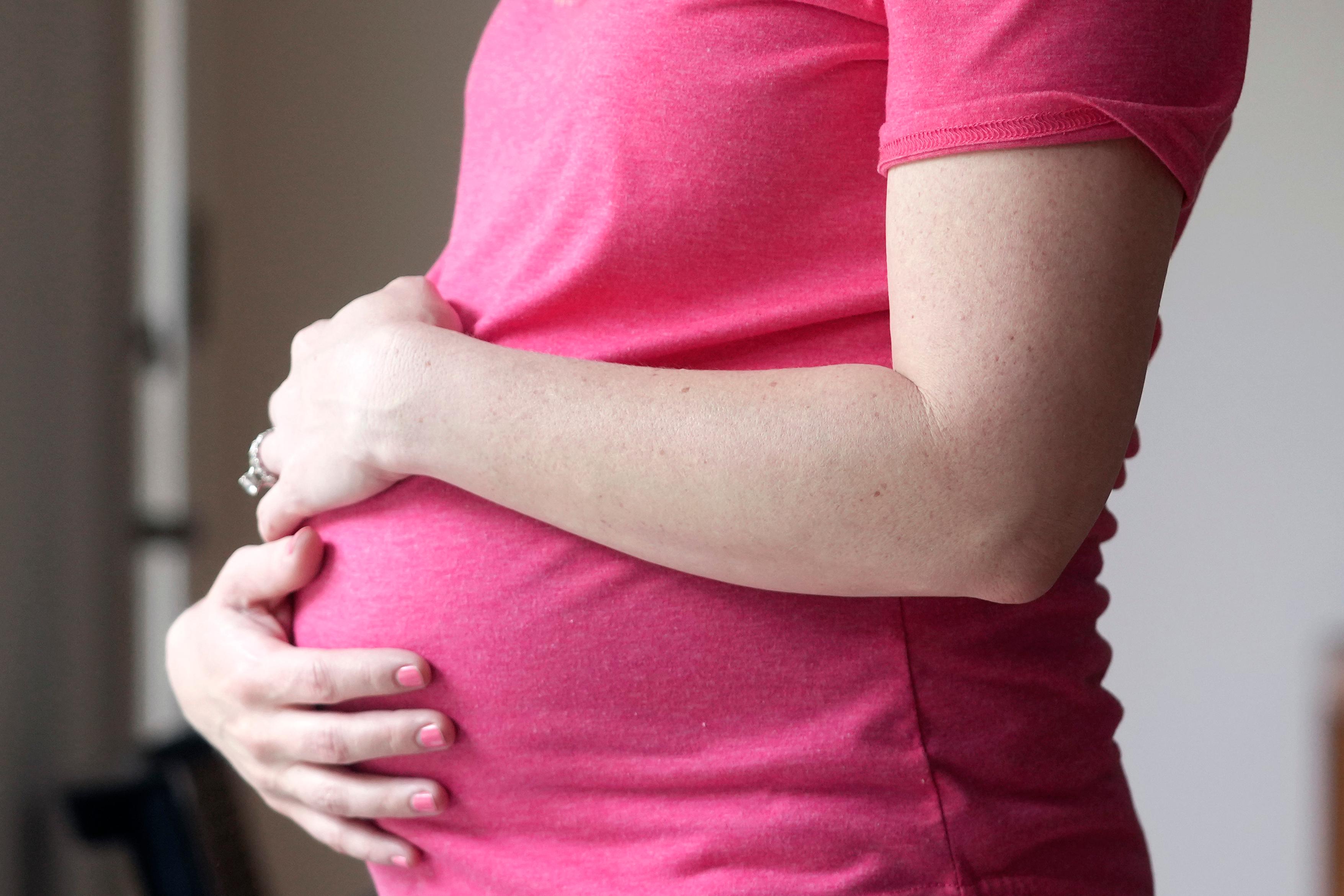
A bill to create a special license plate supporting the Chicano community in Colorado is moving through the state legislature.
The proposed plate features a pair of clasped brown hands against a mountain backdrop and an orange sunburst sky, along with roses and a brightly colored serape motif.
Denise Torrez leads Pueblo-based El Movimiento Sigue, the organization backing the bill. She said it was designed during a seven-hour gathering of about two dozen artists from around the state.
“It was just so cool to see how their brains were working,” Torrez said. “It was a truly collaborative effort. It was a long, but beautiful process.”
The diverse group of artists ranged in age from 14 to 82 and included male, female and non-binary people, Torrez said. Noted Chicano muralist Leo Tanguma — who is well known for his work at Denver International Airport, Houston and elsewhere — invited them to meet at his Denver home.

“The clasped hands represent unity,” Torrez said. “The orange and yellow sunburst represents a sunrise, a new beginning. The roses and the infusion of the serape demonstrates the beauty of our culture.”
“Chicano/a Power” is written along the lower edge of the design.
“Our intent with this phrase is uplifting the internal and collective power we have as a people,” Torrez said. “It is in no way meant to imply power over others.”
Representation and tangible support for Chicano programs
The purpose of the special plate is two-fold, she said.
“People can have a license plate as a symbol of pride of their heritage, and our culture and our significance in the state of Colorado,” Torrez said.
Secondly, the funds raised through the special plate fees will be used to help youth leadership programs and facilitate the well-being of Colorado’s Chicano communities.
People around the state signed the petition to get the bill underway, Torrez said.
“We needed a minimum of 3,000 (signatures),” she said. “We put it out on a Friday and (by) Sunday we had 4,800. So to me, it just showed how interested people were.”
A point of concern: How license plates are made
In Colorado, most license plates are made by people in prison. Many members of the Chicano movement community are adamantly against using prison labor, Torrez said.
So El Movimiento Sigue and the bill’s prime legislative sponsors, Denver-area District 4 Rep. Tim Hernández and District 34 Sen. Julie Gonzales, considered what it would mean to have a license plate manufactured by inmates.
El Movimiento Sigue made arrangements to speak with some inmates via virtual meeting.
“We wanted to make sure they didn't feel exploited,” she said. “In that discussion, they (the inmates) talked about how they develop a sense of responsibility with that job and sense of pride.”
El Movimiento Sigue and legislators discussed the possibility of using contractors outside of the prison system to make the plates. But that would have increased the bill’s cost from $15,000 to about $100,000, which would have made it more difficult to pass at the state House. So, they are moving forward with a bill without that amendment.
Previous proposals for a special Chicano license plate have failed. The current bill has passed the state House and is currently in the state Senate.








